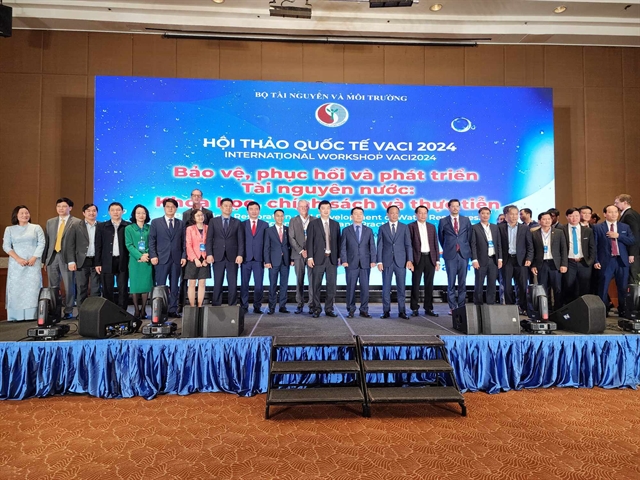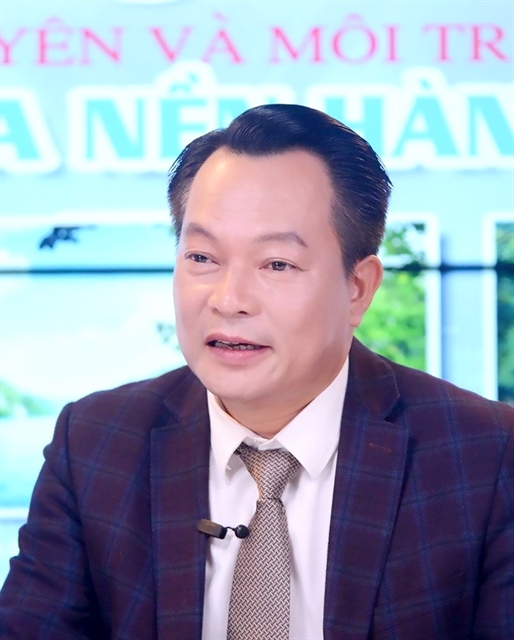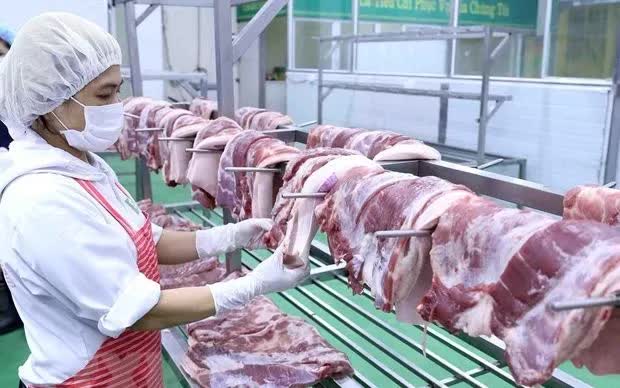 Environment
Environment

 |
| Nguyễn Minh Khuyến, Deputy Director of the Water Resources Management Department under the Ministry of Natural Resources and Environment. VNA/VNS Photo Diệu Thuý |
World Water Day 2024 with the message "Water for Peace" emphasises unity to promote harmony and the ability to restore water resources worldwide. Nguyễn Minh Khuyến, Deputy Director of the Water Resources Management Department under the Ministry of Natural Resources and Environment, spoke with the Vietnam News Agency about the issue.
This year’s World Water Day on March 22 was launched by the United Nations with the theme "Water for Peace". What is the significance of this event to Việt Nam?
This year's World Water Day focuses on the crucial role of water resources in the stability and prosperity of the world.
A report by the United Nations Water (UN-Water) shows that there are over three billion people worldwide dependent on transboundary water sources. In the context of the current impacts of climate change and increasing global population, countries must unite and take action to balance human rights and the needs of everyone for water, balancing the benefits from shared water sources among nations. This serves as a stabilising force, a catalyst for sustainable development.
Without unity and fairness, water can become a cause of conflict when the interests of different water users cannot be reconciled or when the quantity and quality of water decrease, potentially affecting human health and ecosystems. Water can be used as a weapon in armed conflicts, employed as a means to gain or maintain control over territories and populations, or as a tool to exert pressure on opposing groups. Water can also be a victim of conflict when water resources become targets of violence, such as attacks on dam systems or water treatment plants, posing serious health risks and violating international humanitarian law.
Việt Nam has 3,450 rivers and streams with lengths of 10 kilometres or more. Of those, 405 are inter-provincial rivers and streams, including transboundary rivers. Therefore, Việt Nam needs to enhance cooperation and sharing in the exploitation of transnational water resources on rivers across borders such as the Mekong River, Red River, Mã River, Sesan River and Sre Pok River.
Việt Nam joined the Convention on the Law of Non-Navigational Uses of International Watercourses in 2014. How is the monitoring of the enforcement of international conventions carried out?
Việt Nam is the first country in the ASEAN region to participate in the Convention on the Law of Non-Navigational Uses of International Watercourses. Việt Nam's accession to the convention in early 2014, as the 35th member, officially brought the convention into force in the third quarter of 2014, after 17 years of adoption but not being in effect due to a shortage of members.
This is the first global convention comprehensively regulating the relationship between countries in the use of international watercourses in a fair and rational manner between upstream and downstream countries, fulfilling obligations without causing significant harm to related countries according to common international principles and standards. The provisions of the convention are binding on member countries.
In cases where one or several countries adjacent to the water source does not or do not participate in the convention, the principles and measures of the convention can be used as a basis for negotiation or agreement to resolve issues related to international watercourses.
Therefore, joining the convention creates a favourable legal basis for Việt Nam to negotiate and sign bilateral and multilateral agreements with countries sharing water resources for cooperation, dispute resolution and handling issues related to international watercourses, especially given Việt Nam's dependence on exploiting, using and protecting water resources from upstream countries.
To ensure the effective implementation of the Law on Water Resources 2023, what key tasks will the Water Resources Management Department prioritise in the coming time?
Water Resources Law 28/2023/QH15 takes effect on July 1, 2024. To ensure the effective implementation of the law, its provisions are integrated into social life and implemented by organisations and individuals, ensuring comprehensive water resource management that brings economic value and environmental aesthetics.
In 2024, the department will focus on key tasks such as drafting detailed regulations for the implementation of the Water Resources Law 2023; issuing implementation plans for the law; and drafting and issuing, as appropriate, detailed regulations for the contents assigned in the law.
The department will strengthen dissemination and education on the Water Resources Law 2023, including conferences to thoroughly discuss and disseminate the law and its detailed regulations to ministries, sectors, localities, organisations and enterprises.
The department will also develop a national water resource database to meet the requirements of the national digital transformation programme; draft water source scenarios to serve as a basis for ministries, sectors and localities to develop efficient water usage plans. Particularly, the department will promote the implementation of tasks to restore depleted, exhausted and polluted water sources for rivers such as Bắc Hưng Hải, Nhuệ, Đáy and Ngũ Huyện Khuê.
In the long term, the department will closely monitor the implementation of tasks outlined in the Water Resources Law 2023, and enhance coordination with ministries, sectors and localities to effectively manage and utilise water resources for economic, social and environmental benefits. This will help ensure water source security. — VNS




